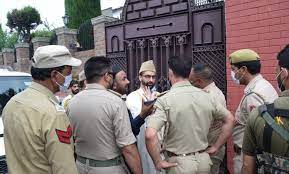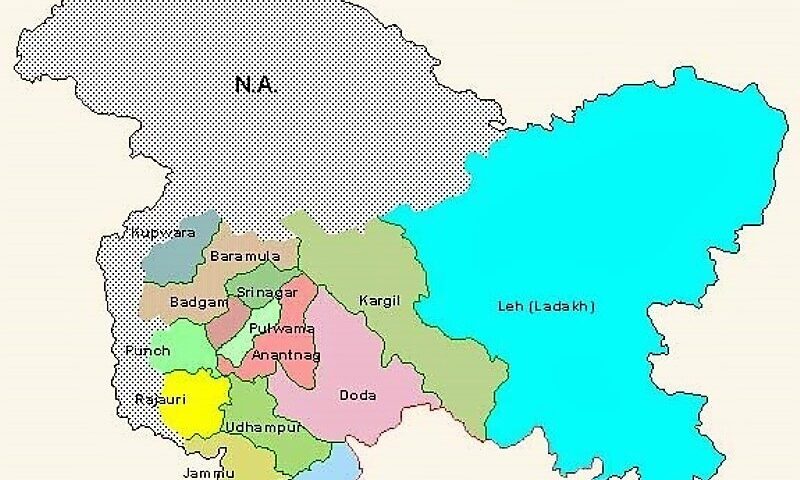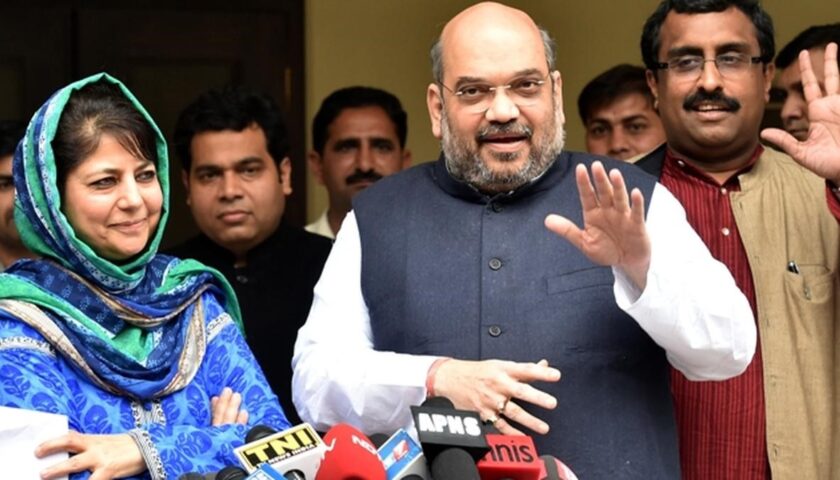Hurriyat Conference Chairman Criticizes Authorities for Restricting Religious Rights
Srinagar, 11 April 2015: A Controversial Move Sparks Outrage
Mirwaiz Umar Farooq, the Hurriyat Conference chairman and Kashmir’s chief cleric, was placed under house arrest on Friday, preventing him from delivering his weekly sermon and offering congregational prayers at the historic Jamia Masjid in Srinagar. The move has drawn sharp criticism from Mirwaiz and religious organizations, who view it as a violation of fundamental religious rights.
Details of the Incident
Mirwaiz, who resides in the Nigeen area of Srinagar, was scheduled to deliver his sermon at the Jamia Masjid in the Nowhatta locality. However, security personnel barred him from leaving his residence, citing ongoing security concerns.
Expressing his frustration, Mirwaiz took to social media, stating, “Yet again, this Friday put under house arrest and barred from offering prayers at Jama Masjid. It is both heartbreaking and outrageous that authorities continue to trample on my basic religious rights at their will.”
MMU Resolution Against Waqf Amendment Act
The house arrest coincided with a resolution formulated by the Mutahida Majlis-e-Ulama (MMU), an amalgam of several religious organizations led by Mirwaiz, against the controversial Waqf Amendment Act. The resolution, which was read out in mosques, shrines, and imambaras across Jammu and Kashmir, categorically rejected the Act and called for its immediate withdrawal.
The MMU expressed concerns that the new legislation undermines the religious and charitable character of Waqf properties, traditionally managed in accordance with Islamic principles. The resolution highlighted provisions allowing non-Muslims to be appointed to Waqf Boards and transferring key decision-making powers to district collectors, which many view as a deviation from the spiritual ethos of Waqf management.
Public Reaction and Political Fallout
The house arrest of Mirwaiz has sparked widespread outrage among the public and religious leaders, who accuse the authorities of suppressing religious freedoms. Political parties in the Valley have also criticized the move, describing it as an attempt to stifle dissent and silence voices opposing the Waqf Amendment Act.
The incident has reignited debates about the balance between security measures and the protection of fundamental rights in Jammu and Kashmir.
Looking Ahead
As tensions continue to rise, the focus remains on the implications of the Waqf Amendment Act and the broader impact of restrictions on religious leaders in the region. Mirwaiz’s house arrest serves as a stark reminder of the challenges facing Jammu and Kashmir’s political and religious landscape.




